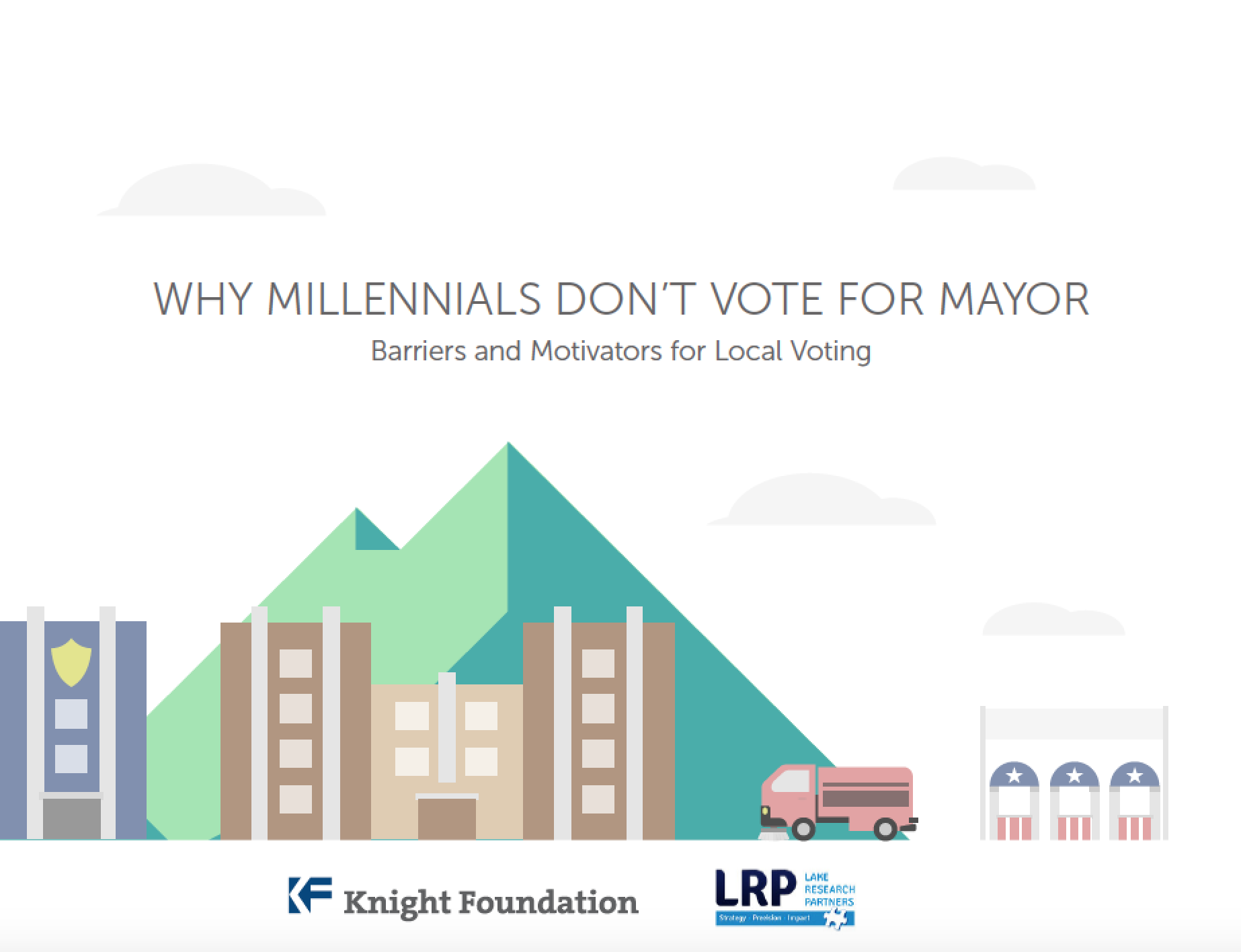Local government often has more real-world impact on the everyday lives of citizens than other levels of government. Police departments, libraries and schools all fall under local government jurisdiction, and for homeowners, local government significantly affects their cost of living through taxation. Even the White House says “most Americans have more daily contact with their state and local governments than with the federal government.”
Voting is perhaps the quintessential indicator of civic engagement and a well-functioning democracy. For young adults, voting indicates current and future attachment to the cities where they live. Local elections, including the candidates and ballot initiatives, provide a crucial opportunity for residents to influence how their city approaches and invests in the issues that matter most to them.
But whereas voter turnout for presidential elections nears 60 percent, local election turnout is often a third of that or lower. Among millennials (20- to 34-year-olds) in urban areas, this turnout gap is even more pronounced.
Local elections are missing millions of millennial voters who participate in national elections but not ones in their cities. This led Knight Foundation to embark on research to explore factors that may be hampering turnout in local elections among millennials, focusing specifically on millennials who participated in the last national elections but not in their local elections. The research aims to identify the causes of low millennial voter turnout in local elections and possible approaches for encouraging more informed local voting which brings more citizen voice to local government.

